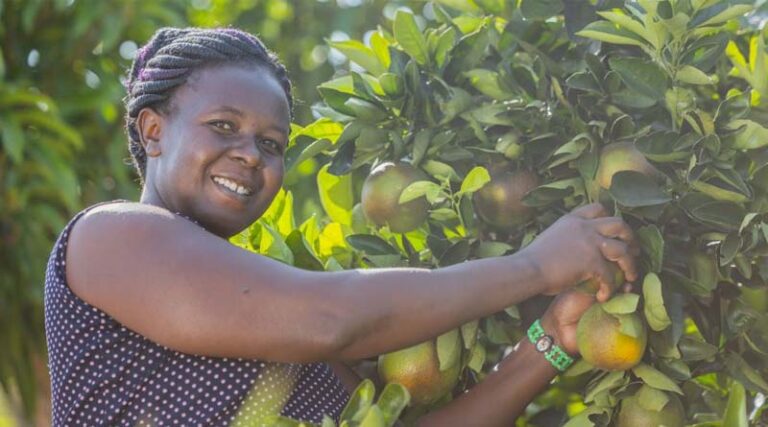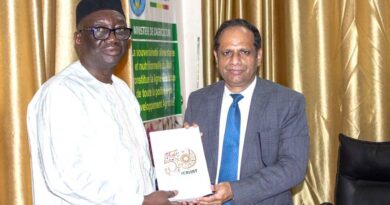
From Climate Crisis to Climate Resilience: In Africa at Local and Regional Levels
30 June 2025, Kenya: The Pontifical Academy of Sciences (PAS) and the Pontifical Academy of Social Sciences (PASS) developed an unprecedented global, bottom-up approach to climate resilience, launched at an international summit in May 2024 and hosted at the Vatican by the late Pope Francis.
A Planetary Call to Action, signed by Pope Francis, governors, mayors, scientists, Indigenous leaders, and youths, has led to a series of regional summits worldwide this and next year to support regional and global climate action. This document was Pope Francis’s final address on healing the planet.
A summit will be held in Nairobi, Kenya, on June 30-July 1 at the Center for International Forestry Research and World Agroforestry (CIFOR-ICRAF), a partner of the event.
“Across Africa, communities are already demonstrating that local knowledge, regenerative practices, and nature-based solutions are powerful tools for climate resilience,” said CIFOR-ICRAF CEO Dr Eliane Ubalijoro. “As we confront the escalating climate crisis, we must amplify these efforts and invest in integrated, inclusive approaches that bridge science, policy, and action. CIFOR-ICRAF looks forward to hosting this event and the vital opportunity to spotlight African leadership and collaboration at all levels in shaping a climate-resilient future.”
The Network of African Science Academies (NASAC) is also a partner of the summit.
“Africa’s climate challenges demand solutions that are rooted in science, informed by local realities, and driven by inclusive partnerships,” said Dr Jackie Kado, executive director of NASAC. The Nairobi summit is a crucial step toward empowering cities and communities to build climate resilience through innovation, solidarity, and determined action. As stewards of both people and planet, there is a moral responsibility to act—guided by science, grounded in justice, and inspired by hope. The Network of African Science Academies is honoured to be part of this transformative agenda.”
“While climate change is a global phenomenon, its impacts vary across countries and communities — with the most vulnerable and poorest populations bearing the greatest burden,” said Dr Wilber Ottichilo, Governor of Vihiga County and Chair of the Environment, Forestry and Climate Change Committee in Kenya. He is among the key participants and speakers at the event.
The Nairobi summit will be focused on strengthening climate resilience through partnerships, networking, science and policy, and consultations with society for positive actions, mobilizing and strengthening the voices and actions of decentralized governments (mayors and governors) at local, sub-national, national, and regional levels. Subject-focused panels will include:
- Challenges and best practices for resilience: Mayors and local leaders
- Innovative financing for resiliency in Africa: Cities and subregions
- Scientific and policy innovations for building resilience
- Weather disasters, recovery and preparation
- Societal transformation: Building resilience with all stakeholders in multi-level governance
- Building resilience for climate-related migration
The summit will also underscore the central role of the Church in championing and advocating for initiatives and policies aimed at strengthening community resilience to climate change. Key Church representatives expected at the event include Archbishop Philip Anyolo, the Archbishop of Nairobi and head of the Catholic Church in Kenya, as well as His Eminence Cardinal Peter Turkson, the Chancellor of the Pontifical Academy of Social Sciences (PASS).
A significant component of building resilience to climate change in Africa, especially in the Sahel region is the provision of sustainable solar electricity which offers a clean, renewable power source to drive climate adaptation, by reducing dependence on biomass and fossil fuels,” said Dr Mohamed Hassan, president of the Sudanese National Academy of Sciences and member of the Pontifical Academy of Sciences. “Integrating solar energy with other resilience strategies, such as reforestation and sustainable land management, can create robust systems that withstand climate variability. Empowering local communities with the knowledge and tools to manage and maintain these systems is essential for long-term sustainability.”
Chancellor Suárez-Orozco hosted the first in-person regional summit, ResilientMass Summit, at UMass Boston in March 2025, building on the Planetary Call to Action for Climate Change Resilience, co-authored by renowned climate scientist Dr Ram Ramanathan, a council member of the Pontifical Academy of Sciences, Chancellor Suárez-Orozco, and Dr Joachim von Braun, President of the Pontifical Academy of Sciences, and others. A virtual regional summit was also held for California, and future summits will be in Vienna, Brazil, India, Asia, Australia and Rome.
This global effort to address the existential threat facing Earth centers on a strategy focused on mitigation, adaptation, and societal transformation (MAST)—mitigation to bend the warming curve as soon as possible; adaptation to unavoidable climate changes by reducing sensitivity and exposure to climate threats; and societal transformation to shift behavior and transform socio-economic systems and governance, and gather massive public support for resilience actions.
“Climate change knows no borders; all feel its cruel effects. We must move beyond division and narrow self-interest and embrace solidarity and shared resilience – standing together behind concrete actions and policies that prioritize climate resilience for the public good,” said UMass Boston Chancellor Marcelo Suárez-Orozco, a member of the Pontifical Academy of Social Sciences Council, a co-convener of the Vatican summit, and co-author of From Climate Crisis to Climate Resilience.
Also Read: UPL continues its commitment to Biodiversity Conservation with the Tenth Annual Sarus Crane Count
📢 If You’re in Agriculture, Make Sure the Right People Hear Your Story.
From product launches to strategic announcements, Global Agriculture offers unmatched visibility across international agri-business markets. Connect with us at pr@global-agriculture.com to explore editorial and advertising opportunities that reach the right audience, worldwide.






